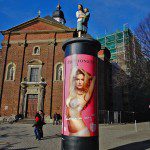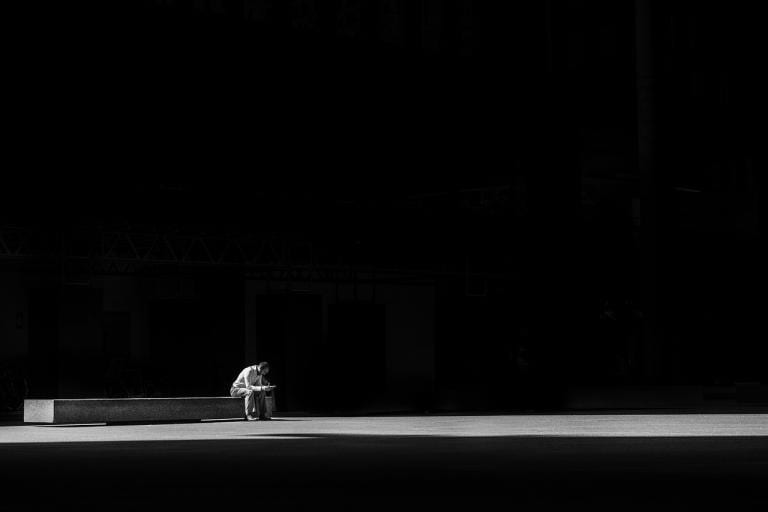Gay marriage has been legalized. The Pope received a hammer and sickle crucifix. As we all know, this means that the world is about to end.
Apocalyptic hysteria is fuelled by a feeling that the world is in some sort of head-long plunge that must eventually end in a very messy collision with the ground. The amount of novelty in the world seems to be increasing at an exponential rate, the amount of information available is completely mind-boggling, almost everyone feels that they are in a state of stunned bewilderment, no one knows what’s going on, no one seems to be in control, the environment is on the verge of destruction, the population is exploding, scientific advancement is overtaking itself, democracy has been totally dissolved in the universal solvent of media manipulation, morality is unravelling, everything causes cancer, and every time you turn on the news it’s all death, plague, hunger, wars and rumours and war overlaid with a thin veneer of obnoxious celebrity gossip.
Somehow, the self has to find a way to moor itself in a sea of uncertainty. For many, faith in the apocalypse seems, somehow, like the safest option: if everything is going to be coming to an end pretty soon, then a sort of abandonment becomes appropriate. It’s like a cancer patient whose diagnosis suddenly frees her to do all the things that she couldn’t do before: why put off sky-jumping if you’re going to be dead in six months? Why slog through the days at the office if you’ll never survive to need that RRSP?
It’s not that people fear that apocalypse. Listen to Johnny Cash’s “It’s going by the book,” REM’s “It’s the end of the world as we know it,” “Tribulation” by Charlie Daniels, Judas Priest’s “Pestilence and Plague,” Leonard Cohen’s “The Future,” Nick Cave’s “Abattoir Blues,” or Jimmy Buffet’s “Party at the End of the World.” These people, and their millions of listeners, aren’t terrified about the end of the world. They’re fascinated. Excited. Almost looking forward to it.
Why? Because the world that we live in is actually quite unlivable. Most of us are lost and confused most of the time. We feel terrible anxieties, depressions, self-hatreds, paranoias that we can’t entirely explain. The drugs don’t actually do enough to soothe the raw nerves – that’s assuming that we trust the pharmaceutical companies enough to put their chemicals into our bodies in the first place. The real, important, big questions of life the universe and everything are not being answered to our satisfaction. We don’t know who we are, or why we are here, or what we’re supposed to do. The most oft-repeated panacea quoted by our culture “Buy Buy Buy” doesn’t fill the gap. What if you’ve already bought everything you need? What if the purchases don’t make you happy? To whom shall we go, for Walmart does not sell the words of eternal life?
The apocalypse promises to divest us of responsibility for solving the seemingly impossible problems of the Culture of Death. It will surely be horrible: we will be hunted by the dragon, devoured by the beast, and the blood of the martyrs will darken the rivers of the world. But at the same time, it will be exciting, glorious, and presumably short (most people do not imagine a long drawn out apocalypse that spans decades of long-grinding misery.) A brief burst of exquisite pain, and then joy and life everlasting.
I have a sneaking suspicion that it’s never going to happen. As I’ve engaged with the scriptures on the “end times” over the years, I’ve become increasingly convinced that the truth is we are living in them — and have been for about 2000 years. Moreover, I think it’s very likely that we’re going to go on living in them for 2000 years to come. What’s described is not a brief, almost orgiastic cataclysm, but the more or less perpetual state of humanity as the spirit broods over the world, groaning in slow labour as it births the New Creation painstakingly into being.
Photo credit: Pixabay













